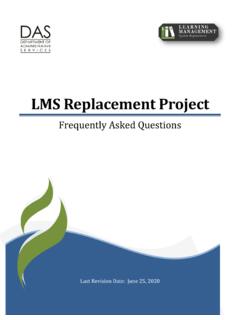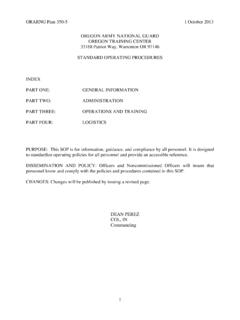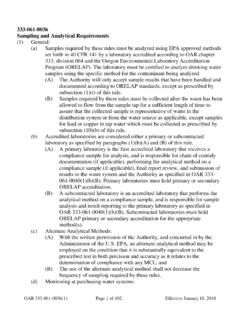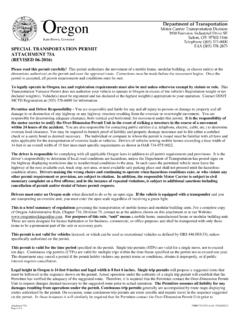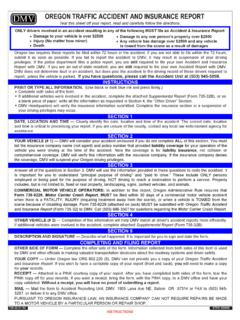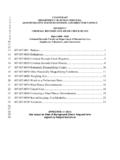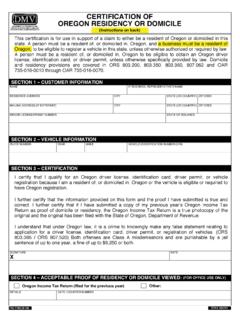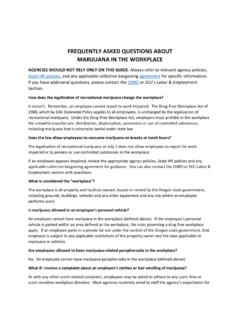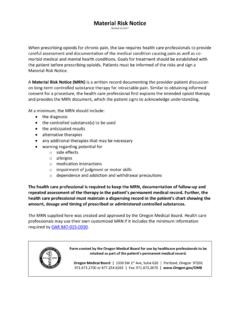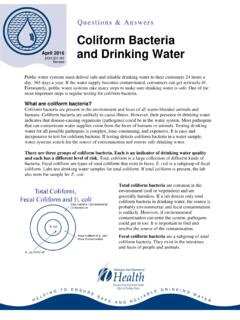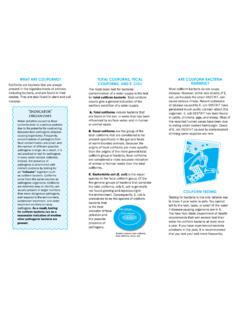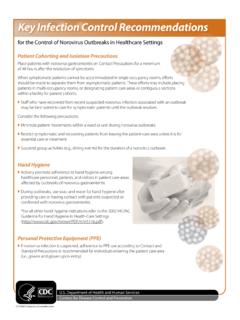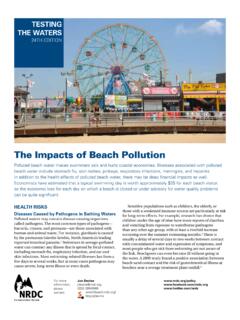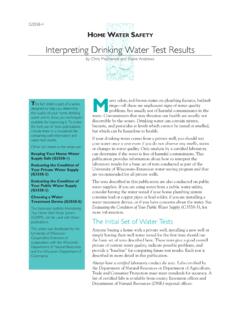Transcription of Coliform bacteria in well water: What you should know
1 This document can be provided upon request in an alternate format for individuals with disabilities or in a language other than English for people with limited English skills. To request this publication in another format or language, contact the Domestic Well Safety Program at 971-673-0977 or 711 for HEALTH DIVISIONE nvironmental Public HealthColiform bacteria are part of a broad group of bacteria found in soil, water and vegetation. Coliform is also found in the intestines of humans and other warm-blooded animals. Coliform can enter your well through groundwater, surface water run-off, cracked or broken well parts, poor construction, and leaking septic tanks. Coliform in your well water can mean there are disease-causing organisms such as E. coli. E. coli is a sign of fecal matter and can cause health Coliform , fecal Coliform and E.
2 ColiColiform bacteria and your healthIf total coliforms (E. coli) are in your well water, you may have diarrhea, cramps, nausea, headaches or other symptoms. Infants, young children and people with compromised immune systems are at a higher risk. Coliform bacteria and your well waterTesting for Coliform is the most common way to know if your drinking water is contaminated and unsafe to drink. Contact an accredited laboratory for specific instructions on how to collect, store and send the sample. The test will cost between $25 $40. To find accredited labs in Oregon, visit your water has a positive test for total Coliform , it should also be tested for E. coli. If positive for E. coli, you should switch to bottled water or another source of safe drinking water and seek treatment options.
3 E. coliTotal coliformTotal Coliform = Environmental contaminationFecal coliformFecal Coliform and E. coli = fecal contaminationE. coli O157:H7 You should test for Coliform bacteria at least once a bacteria in well water: What you should knowOHA 8343 (3/16)Interpreting your Coliform bacteria resultsBacteria resultWater useRecommendationAbsentSAFE for all water at least once a ( Coliform and E. Coli)NOT SAFE for drinking, food preparation, brushing teeth and use in eyes. SAFE for other domestic uses and irrigating your water before using or use bottled water (or other safe drinking water source). Supervise children to help them avoid swallowing water while bathing, brushing teeth, etc. Inspect your well head and well parts for repairs and contact your local drinking water specialist for treatment more information: Private well owners with health-related questions about Coliform bacteria in their water, well maintenance and testing recommendations, call 971-673-0977 or email For questions about treatment options for your domestic well, contact the drinking water specialist at your local health department ( ).
